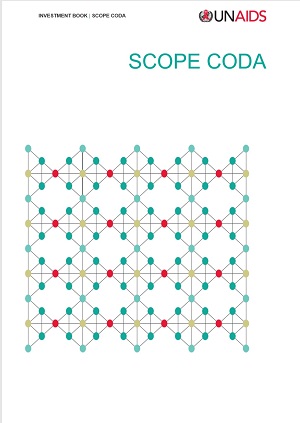
TECHNOLOGY HAS A VITAL ROLE IN REACHING THE WORLD’S MOST VULNERABLE POPULATIONS.
SCOPE CODA merges identity management with programme management to provide front-line workers in the deep field without connectivity with the tools to improve nutrition and health programming. Once connected, it creates a unified information system, so that all partners can improve programmes and plan together. The system reduces errors, increases programme efficiency, and improve nutritional and health outcomes of treatment clients. Funds raised here will be directed towards mother and child health and nutrition (MCHN) services for children under five, as well as people living with HIV and tuberculosis.
In early 2018, SCOPE CODA was piloted in Uganda and South Sudan followed by a stock-taking and learning exercise to improve the application. There will be a steady roll-out of the use of SCOPE CODA to fourteen other high-profile countries in East and Southern Africa by 2020, as a premier tool to improve malnutrition, HIV and TB treatment and work towards the goal of ending AIDS by 2030.
To end the AIDS epidemic by 2030 and to transition to Universal Health Care (UHC), there is a need for more integrated service delivery platforms to expand, personalise and improve the efficiency and effectiveness of all health services, including HIV services. Digital technology has the potential to build capacity and strengthen health systems for UHC, including HIV services; while extending beyond facility-based service delivery to increasing participation of clients and communities in their own health. Digital technologies and platforms can catalyse multidimensional responses allowing greater ease for planning and responding collectively.
SCOPE CODA is an integrated information system that merges identity management to health service provision and transfer management to create electronic health records that register, track and improve nutrition and health service provision for the world’s most vulnerable populations, including HIV testing, treatment and care services. It replaces paper-and-pen records, ration cards and reports in healthcare centres with a personalized smartcard linked to a highly secured electronic database, creating complete and timely records of service provision. Through tracking individuals, the system can ensure that patients receive necessary services, adhere to treatment, and have a secure, complete record of health services and treatments they received.
To reach UHC and to end the AIDS epidemic, UHC must be, by definition, truly universal, covering all populations including those living in humanitarian contexts and fragile states, Internally Displaced People (IDPs), refugees, and migrants. To meet the challenges of providing services in the world’s most challenging environments for the world’s most vulnerable populations, including complex emergencies and fragile emergencies, SCOPE CODA utilizes a hybrid of offline and online technology to work in such environments. SCOPE CODA operates offline to follow national protocols around testing, treatment and care, supporting frontline workers to provide high quality care and ensuring that they aren’t dependent upon connectivity to provide essential treatment and care. Then once connectivity is available, the devices sync to the cloud, providing analytics and access to the various stakeholders, from programme managers to national government ministries to donor organizations, whether through the SCOPE CODA platform or the existing national health management information system.
SCOPE CODA not only creates electronic health records for integrated services, including HIV, but the system also supports transfer management to clients, both cash or in-kind transfers. The transfers can be conditional or non-conditional, depending upon government or stakeholder policy objectives. Transfers can be provided directly by governments or organizations or through third party vendors, such as banks.
Additionally, the system seeks to support clinical and public health decisions at all levels: from assisting frontline workers in providing treatment to supporting national governments and global stakeholders in resource allocation and protocol development. Through big data analytics, SCOPE CODA seeks to manage millions of cases, while still treating each person as an individual.
Finally, electronic health records can be used by national governments, research institutes, and international partners to generate invaluable evidence to accelerate progress towards the SDGs, while protecting patient confidentially. The information gathered provides deep insights on service provision and utilization, illness burden, and treatment outcomes. Utilizing this information can help to re-develop protocols, strengthen service provision and ultimately improve client outcomes, supporting them to live a healthy and productive life.
To date, SCOPE CODA’s case management technology has been utilized in malnutrition treatment programmes in South Sudan, Uganda, Tajikistan and Madagascar. As the system matures, WFP intends to piggyback on the existing functionality to extend the system to other services for an integrated nutrition and health service package which will include HIV testing, treatment and care services.
Please click on the image below to download a pdf with more details.
For more information about this opportunity or others, please contact partner@unaids.org.

